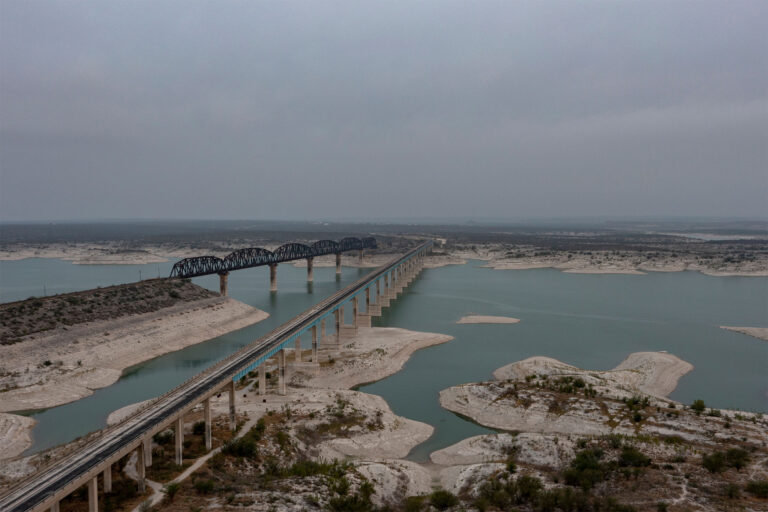The Temptation of Other People’s Applause
This editorial by José Romero appeared in the July 2, 2025 edition of La Jornada, Mexico’s premier leftist daily newspaper.
In 2018, the people of Mexico spoke clearly. They said enough. Enough with the pretense, the pacts between elites, and a modernization that only benefited a few at the expense of the majority. That year marked the beginning of a process that sought not to administer what was inherited, but to dismantle it. The Fourth Transformation (4T) was not born as an agreement between elites, but as a democratic break with a regime that had normalized inequality, dependency, and privilege.
That mandate remains in force. The June 2024 victory was not a signal for moderation or for negotiations with the defeated. It was renewed popular support for furthering what remains pending: consolidating economic, energy, food, technological, and educational sovereignty; liberating knowledge trapped by private interests; and breaking with the technocratic inertia still present in several state institutions. The reform of the judiciary has already been achieved, and with it, one of the pillars of the old regime collapsed.
The Fourth Transformation was not an electoral accommodation. It was—and must continue to be—a break with the past. Those who don’t understand its power will end up betraying it.
However, despite enjoying renewed legitimacy, a legislative majority, and broad social support, some recent decisions seem to go in the opposite direction. Those who sabotaged the transformation are being reinstated from their columns, chairs, or boardrooms. Their presence in institutional spaces is being normalized as if they hadn’t fought this process from the beginning. In exchange for what? In the name of what supposed stability?
Transformative politics isn’t achieved by ceding ground. It’s not about closing doors, but about being clear about who’s pushing and who’s hindering. It’s time to strengthen those who have upheld this agenda, not pave the way for pretenders. We must invest in a new generation of civil servants, teachers, scientists, and intellectuals who embrace this transformation as their own, without needing to ask permission.
The executive branch today has legitimate and unprecedented power. It shouldn’t be ashamed of this. Some call it authoritarianism, but what they really fear is that, for the first time, a popular majority will use power to truly transform. We must not back down from that narrative. Firmly exercising a democratic mandate is not a dictatorship; it is, in fact, a historic responsibility.

Governing from the left doesn’t mean preserving what exists, but rather transforming it. It’s not enough to occupy the government: power must be used to break the structures that sustain inequality. Sharing the course with those who have already derailed it is to derail the project. Transformation cannot be limited to words or symbolic gestures. It must be expressed in decisions that fundamentally change power relations.
The global context demands clarity. We face a geopolitical reconfiguration, a climate crisis, a technological war, and an energy transition that brook no hesitation. It is no longer valid to say that external conditions limit our action. Today, the State has the power and the helm. It must use them with a sovereign spirit.
Economically, the contradictions are evident. We talk about productive sovereignty, but we remain embedded in low-value global chains. Strategic projects—satellites, semiconductors, electric cars—are announced without sufficient technical or budgetary foundations.
Economically, the contradictions are evident. We talk about productive sovereignty, but we remain embedded in low-value global chains. Strategic projects—satellites, semiconductors, electric cars—are announced without sufficient technical or budgetary foundations. At the same time, national science often operates without any connection to industry or a clear development strategy. Universities conduct research, but they don’t produce transformation. There is no integration, no common project.
A transformative policy cannot repeat that logic. It’s not about having laboratories if there’s no industry to take advantage of them, nor about training doctors if they can’t contribute locally. Sovereignty isn’t decreed: it’s built by coordinating production, technology, and planning. It requires a State that guides and knowledge that connects with the territory. Everything else is simulation.
The root of the problem is the search for external recognition. The temptation to please everyone—international media, multilateral organizations, figures from the old model—leads to an ambiguity that doesn’t strengthen; it weakens. In this terrain, technocrats regroup, the defeated recycle, and the meaning of the project erodes.
Openness should not be confused with surrender, nor pluralism with concession. Transformation does not require editorial legitimacy or certificates of international good conduct. It is sustained by consistent work and loyalty to the people’s mandate.
Mexico doesn’t need gestures toward those who no longer represent anyone. It needs firm decisions, clear direction, and the will to exercise power without hesitation. Because even the most legitimate projects can be derailed if we lose sight of who the true adversaries are. And often they aren’t directly across the country, but within: in bureaucratic comfort, in feigned loyalties, in half-hearted decisions that weaken from within.
History gives no respite. It doesn’t forgive those who hesitate when it comes to making a decision. Today, the people are on the right side. And the only irreparable mistake would be to fear the depth of the change that has already begun.
The Fourth Transformation was not an electoral accommodation. It was—and must continue to be—a break with the past. Those who don’t understand its power will end up betraying it.
History is already moving. And it doesn’t wait for the undecided. It will only continue its course if there are those who support it firmly, clearly, and with the people at its center.
-
People’s Mañanera January 19
President Sheinbaum’s daily press conference, with the ever-frequent reading of the polls, raising revenue without raising taxes, Salinas Pliego tax debt comes due, US Hercules plane landing in Mexico, and Mexican dying in ICE custody.
-
Our Water, In Whose Hands?
A promising vision from President Sheinbaum for public water management rapidly disappeared. Yet again the Mexican state openly assumes the role it has always played under neoliberalism: facilitating access to natural resources for special interests.
-
38 Billion Pesos Withdrawn from AFORE Accounts Due to Unemployment
The large number of Mexicans withdrawing from their pensions to survive unemployment indicates an urgent necessity to establish national unemployment insurance.




